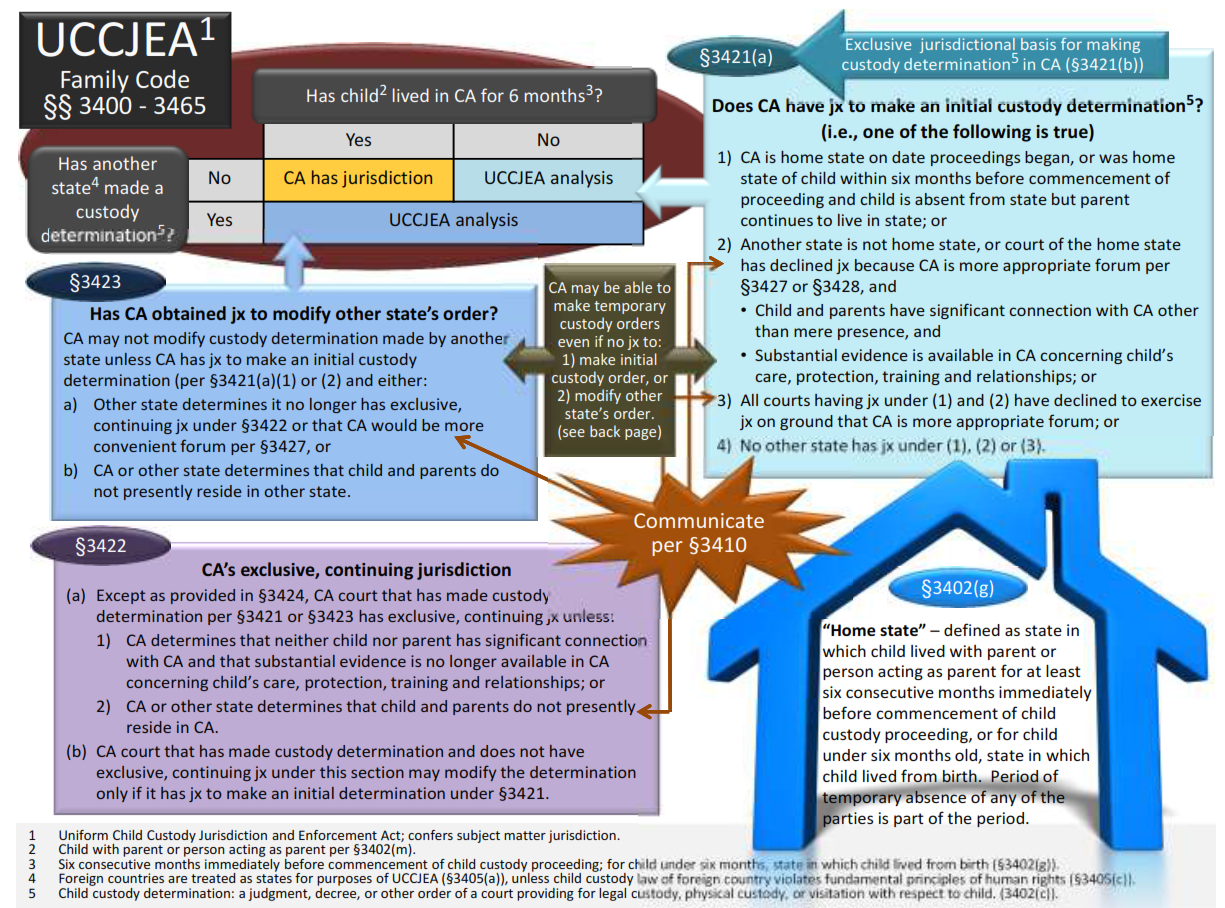The Uniform Child Custody Jurisdiction and Enforcement Act (UCCJEA) is a federal law that governs how almost every state handles child custody and support. If your divorce or legal separation involves questions of child support or custody, UCCJEA rules will apply.
The UCCJEA technically does not allow cases to be transferred from one state to another. The location of your case will depend on your child’s home state – the state where the child and at least one parent have lived for at least 6 months. If the child has lived in multiple states during that time, their home state will be the one with the “strongest ties.”
Although uncommon, your child’s home state could decline jurisdiction if you’re able to convince the court that the location would be an “inconvenient forum.” In making this decision, the court will look at where the child currently lives and the financial situation of the parents. This can happen if a child has moved to a new state within the last 6 months.
Under the UCCJEA, you can also exercise emergency jurisdiction in certain situations – for example, if your child is in danger or if the custodial parent is no longer able to care for them. In these cases, a court outside the child’s home state could take their case. However, emergency custody orders issued by a non-home state are usually temporary.

